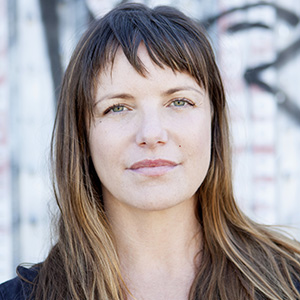This week, we’ll be introducing you to some of the world-changing storytellers that will be speaking at Story Movements, our new catalytic two-day convening September 15-16 that examines platforms and genres of civic media storytelling through the lens of social justice. From documentary film to investigative journalism to virtual reality to participatory storytelling to persuasive gaming to photography, the convening examines and captures the current and future-looking moment in story-led demands for social change.
 Today, meet Katie Galloway, one of the directors of the documentary film The Return, as well as an investigative journalist who holds a Ph.D. from UC Berkeley in Political Science.
Today, meet Katie Galloway, one of the directors of the documentary film The Return, as well as an investigative journalist who holds a Ph.D. from UC Berkeley in Political Science.
Project Synopsis: In 2012, California amended its “Three Strikes” law—one of the harshest criminal sentencing policies in the country. The passage of Prop. 36 marked the first time in U.S. history that citizens voted to shorten sentences of those currently incarcerated. Within days, the reintegration of thousands of “lifers” was underway. THE RETURN examines this unprecedented reform through the eyes of those on the front lines—prisoners suddenly freed, families turned upside down, reentry providers helping navigate complex transitions, and attorneys and judges wrestling with an untested law. At a moment of reckoning on mass incarceration, what can California’s experiment teach the nation?
CMSI: What was your path to becoming a documentary filmmaker?
Katie Galloway: I began as an intern at the Center for Investigative Reporting and print reporter at the Tenderloin Times newspaper, moved into radio news and documentary at KQED and KPFA (my first long form radio doc, for Pacifica, was a story on prisoner allegations of abuse by correctional officers at Pelican Bay — and — as a result of the 20 hours of interviews i did with men incarcerated in the prison’s SHU, set the path for my career). From there I went to journalism school with a focus on docs, produced for a small production company in New York before joining PBS Frontline, where I produced and reported SNITCH, THE CASE FOR INNOCENCE and REQUIEM FOR FRANK LEE SMITH — all focused on criminal justice and mass incarceration. My feature work as an independent has centered on related themes: PRISON TOWN, USA (POV, 2007) looked at the impact of the prison boom in rural america; BETTER THIS WORLD (POV, 2011) on the status of civil liberties against a 911 policing and surveillance backdrop EL POETA (VOCES, 2015) on the US roots of the Mexican drug war and and THE RETURN (POV, 2016) at the release of thousands of “lifers” after a historic reform. Short format work for NYT OpDocs, The Intercept/Field of Vision and Mother Jones has overlapped thematically as well. My current project in post production THE PUSHOUTS looks at the other end of the school to prison pipeline — kids most of us call “dropouts” who often wind up in the criminal justice system. It will broadcast nationally on PBS in 2017.
CMSI: What inspired you to make The Return?
Katie Galloway: After decades of fascinating, horrifying and urgent stories that all seemed to be bad news, my partner Kelly Duane de la Vega and I were looking for the good news. Out of that search came The Return and my project The Pushouts. Each has a meaningful and authentic measure of hope and vision alongside the social/political/economic critique present in my prior work.
CMSI: How did your understanding of the issue of mass incarceration and reintegration change over the course of making this film?
Katie Galloway: The biggest takeaway for me was the deep recognition that well supported transitional and jobs programs are desperately needed for returning citizens. That, after years in a system of incarceration that essentially does the opposite of preparing people for a healthy and successful life on the outside, professional support is needed to help people reintegrate and resocialize — and that this process should almost always happen away from even the most loving and supportive families, at least for a period, because of inevitable triggers and need to decompress from the horrors of the incarceration system.
…………
To learn more about The Return, click here.
To see the full line-up of speakers at Story Movements, click here.
To register for Story Movements, click here.
